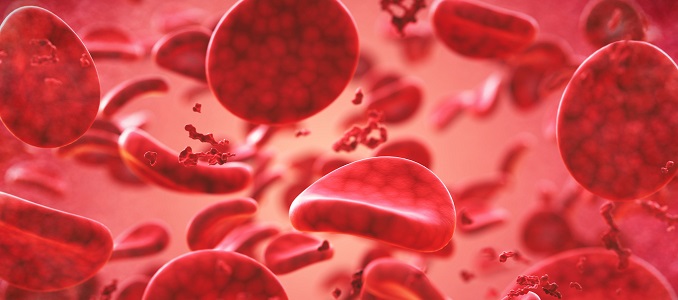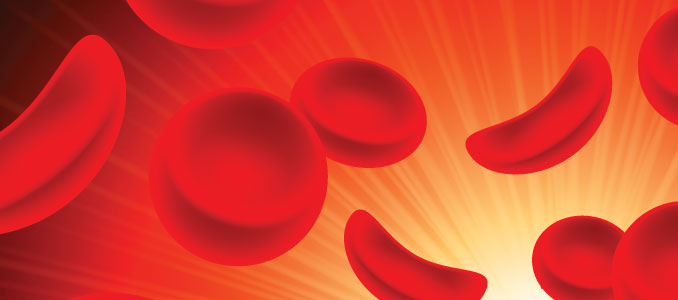Low Testosterone Levels and the Risk of Anemia
Age-related testosterone loss could cause anemia in older men and women.
Anemia is a condition in which you lack enough healthy red blood cells to carry adequate oxygen to your body’s tissues. Low testosterone, or “Low-T,” has been associated with anemia. Studies have indicated that older men with low testosterone are almost five times more likely to be anemic than men with normal levels.
Among the many testosterone functions, the hormone plays a critical role in the production of red blood cells. Therefore, anemia is often a symptom associated with testosterone deficiency. The higher-than-normal rates of anemia, particularly in men over 50 suffering from Low-T, have led medical researchers to further explore the connection between testosterone levels and anemia in older patients.
What Is Anemia?
The hemoglobin within red blood cells carries life-giving oxygen through your heart and lungs. Anemia is a condition in which your body lacks sufficient red blood cells to carry healthy oxygen levels.
Anemia Symptoms and Causes
There are different types of anemia and different causes for the condition. Anemia can be mild, or it can be quite severe. Some of the most common causes of anemia include:
- Chronic inflammation
- Vitamin B12 deficiency
- Iron deficiency
The is an abundance of recent clinical research that shows a connection between anemia and low testosterone. This link is particularly evident in patients over 50 with anemia.
Mild cases of anemia can be present with little or no symptoms. More severe cases can seriously impact your quality of life with symptoms such as:
- Fatigue
- Weakness
- Pale or yellowish skin
- Irregular heartbeats
- Shortness of breath
- Dizziness or lightheadedness
- Chest pain
- Cold hands and feet
- Headaches
Of greatest concern is that even mild cases of anemia can lead to premature death by increasing the risk of cardiovascular disease, liver disease, and kidney disease.
Anemia is a condition in which you lack enough healthy red blood cells to carry adequate oxygen to your body’s tissues.
What Is the Connection Between Testosterone Deficiency and Anemia in Older Men and Women?
We know that testosterone is crucial for the production of red blood cells. In older men and women who are suffering from low testosterone, a corresponding decline in red blood cell production often occurs. This drop in red blood cells due to testosterone deficiency seems to be linked to the abundant occurrence of anemia in patients over the age of 50.
In one study of 905 adults over the age of 65, it was discovered that those in the lowest range of testosterone levels had a higher risk of anemia. This was true of both men and women in the study.
Role of Testosterone in Red Blood Cell Production
The production of red blood cells is called erythropoiesis. Testosterone increases the production of erythropoietin, a hormone produced by the kidneys that stimulates erythropoiesis.
Testosterone replacement therapy has been known to increase red blood cell production. In patients on testosterone therapy, this can sometimes lead to a condition known as erythrocytosis or polycythemia, in which the blood becomes thicker and more viscous. This is why non-anemic patients taking testosterone often have to go for regular therapeutic blood draws to avoid this condition. However, in patients with low testosterone and anemia, testosterone can be beneficial in increasing iron in the blood and stimulating the production of more red blood cells. For these patients, those with low testosterone and anemia, this potential side effect of testosterone therapy is actually a benefit.
How Do Testosterone Levels Affect Iron Levels?
Iron is one of your body’s most essential vital nutrients. It supports various biological activities in your body, but its most important function is the role iron plays in synthesizing hemoglobin and minimizing the risk of anemia.
Among its other actions related to red blood cell production, testosterone also suppresses the release of a peptide hormone known as hepcidin, which is a regulator of iron absorption. Basically, hepcidin pulls iron out of your blood, so the greater the level of testosterone you have, the higher degree of iron in the blood, and the more red blood cell production. This is why men have a greater blood volume than women. It also explains why anemia is far more common among women than it is among men.
Hepcidin is primarily made in the liver, and when suppressed in the presence of increased testosterone, it can cause more iron than is normally present in the bloodstream. It is a lack of iron in the blood that is one of the primary causes of anemia. Conversely, increased iron in the blood signals your bone marrow to increase red blood cell production. Again, in patients without anemia, taking testosterone this increased iron in the blood could lead to a problem, however in testosterone deficient patients with anemia, whose symptoms of anemia are being caused by a lack of healthy red blood cells, the stimulation of red blood cell production can be a positive benefit rather than a troublesome side effect.
Anemia can be a symptom in men and women with low testosterone.
Benefits of Testosterone Therapy for Anemia
Many studies have shown that there can be positive benefits of testosterone replacement therapy for patients with low testosterone and anemia, particularly when we know that the anemia is not the result of any other causes.
Further information from the study mentioned above brings up the concern that anemia in older persons is often associated with a higher risk of disability and accelerated physical function decline. The study of 905 individuals contained 396 men, of whom 31 had anemia at baseline (20 with no evident cause) and 509 women with 57 diagnosed with anemia (26 with no evident cause). Those participants with anemia had a greater incidence of stroke history than those without anemia, as well as lower testosterone levels – independent of age.
This study and others have clearly indicated that testosterone deficiency can contribute to the development of anemia, especially in older patients and in the absence of other known causes.
What Does the Medical Research Say About Low Testosterone and Anemia?
The studies mentioned earlier are just some of a growing body of evidence that indicates a definitive link between anemia and low testosterone, particularly in patients over the age of 50.
A landmark study on the value of testosterone replacement for older men, “The Testosterone Trial,” concluded in 2018. The described purpose of the Testosterone Trial is as follows: “As men age their blood testosterone levels fall, and also they find it more difficult to walk, have less energy, have less interest in sex, have greater difficulty remembering, and tend to be anemic, as well as greater risk of cardiovascular disease. It is possible that low blood testosterone is a cause of these problems. The purpose of The Testosterone Trial is to determine if testosterone treatment of men who are 65 years and older – and who have a low blood testosterone and one or more of these problems – will improve them.
The Testosterone Trial is a multicenter study of six coordinated trials of 800 men with low testosterone. One of those six trials specifically looked at anemia. The Anemia Trial of the Testosterone Trials drew the following conclusions:
- Testosterone treatment of older men with low testosterone levels and unexplained anemia corrected the anemia more than placebo. This treatment also corrected anemia more than placebo in men who had anemia of known causes, such as iron deficiency.
- Testosterone deficiency in older men results in decreased hemoglobin levels, which can cause anemia.
- Correcting testosterone deficiency increases hemoglobin levels and tends to correct the anemia, even in the presence of a coexisting cause of anemia (such as iron and/or vitamin B12 deficiencies, chronic inflammation).
The overall conclusion of the trial stated, “[our results] suggests that the increase in hemoglobin levels and amelioration of anemia with testosterone treatment is clinically meaningful.”
Studies have shown that anemia can be caused by low testosterone and that red blood cell production can be improved by testosterone replacement therapy.
Now that you know a little bit more about the relationship between testosterone, red blood cells, and anemia, why not take a minute to contact us and learn more about how hormone replacement therapy can improve your quality of life?
- Testosterone deficiency is a cause of anemia and reduced responsiveness to erythropoiesis-stimulating agents in men with chronic kidney disease. Carrero JJ1, Bárány P, Yilmaz MI, Qureshi AR, Sonmez A, Heimbürger O, Ozgurtas T, Yenicesu M, Lindholm B, Stenvinkel P Nephrol Dial Transplant. 2012 Feb;27(2):709-15. doi: 10.1093/ndt/gfr288. Epub 2011 May 26.
- Medical news bulletin
- Renal&Urology news
- Testosterone treatment improves bone density and anemia, may lead to cardiac risk Studies show benefits, risks of testosterone treatment in men over 65 February 21, 2017
- The relationship between iron deficiency anemia and sexual function and satisfaction among reproductive-aged Iranian women Zahra Nikzad, Mina Iravani , Parvin Abedi, Nahid Shahbazian, Amal Saki Published: December 6, 2018
- Could Testosterone Replacement Therapy in Hypogonadal Men Ameliorate Anemia, a Cardiovascular Risk Factor? An Observational, 54-Week Cumulative Registry Study Li Tao Zhang Ji Yong Kim Jong Kwan Park J October 16, 2015






